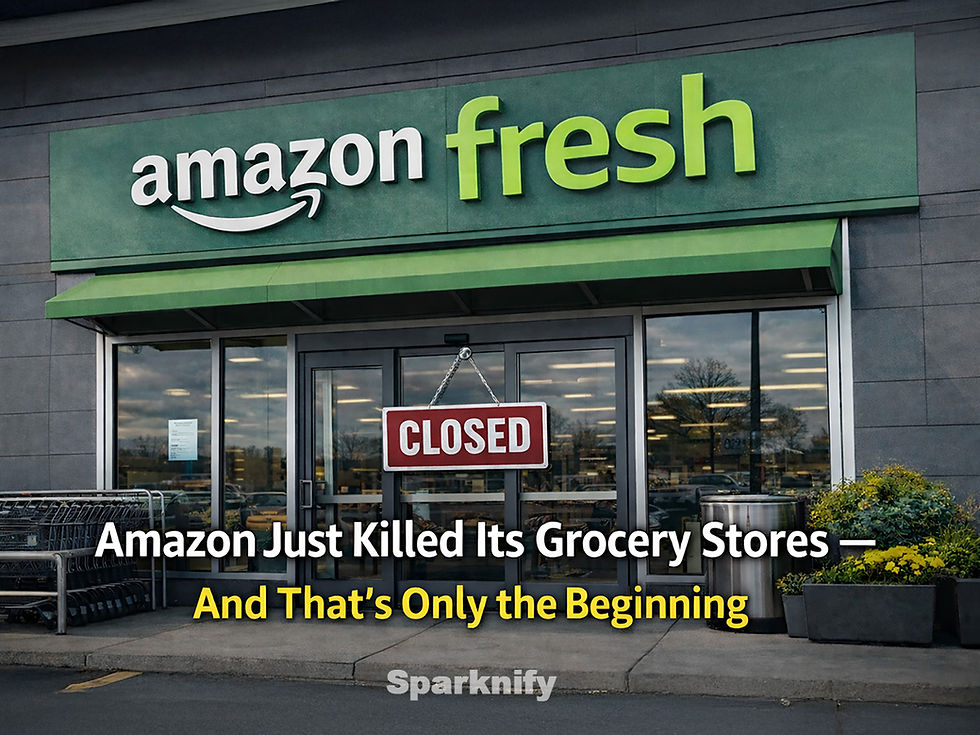How AI-Powered Clinical Decision Support Enhances Patient Safety and Reduces Medical Errors
- Sparknify

- Jun 26, 2025
- 3 min read
Updated: Aug 2, 2025
From prescription mishaps to surgical mistakes and billing inconsistencies, medical errors pose a serious threat to patient well-being and healthcare efficiency. AESOP Technology, spun out of Taipei Medical University and now headquartered in San Francisco, is tackling these challenges using AI-driven clinical decision support systems (CDSS) that enhance diagnostic accuracy, flag medication errors, prevent wrong-site surgeries, and even optimize billing.

A Legacy Rooted in Safety and Innovation
AESOP building blocks began with RxPrime (formerly MedGuard), a machine learning system trained on Taiwan-based clinical data to detect wrong-drug errors, particularly those arising from look-alike/sound-alike (LASA) medications. In a two-year real-world evaluation, RxPrime flagged 28,536 alerts among 1.2 million prescriptions, intercepting 470 serious errors (approximately 1.64% of alerts), with doctors accepting nearly 49% of the warnings—demonstrating both clinical relevance and usability .
Building on that foundation, AESOP introduced DxPrime, a CDSS that guides physicians toward correct diagnostic coding. During the pandemic, when clinicians were overwhelmed, DxPrime achieved 100% user adoption. It increased inpatient reimbursement per case by 5% and reduced insurance denials, thanks to more accurate documentation .
Expanding with DxCode and DeepDRG: Targeting Diagnosis and Billing Errors
AESOP continues to evolve its platform, adding DxCode and DeepDRG to its suite of decision support tools aimed at reducing both clinical and billing errors. By analyzing real-world structured data—including medications, labs, and procedures—the company’s AI models have proven capable of filling documentation gaps and identifying errors that conventional rule-based systems miss .
These AI models are especially adept at identifying discrepancies in EMR data—alerting providers in real time and preventing errors upstream, before they escalate into adverse events, revenue loss, or compliance issues.
Preventing Wrong-Site Surgery: The AOP Model
Perhaps AESOP’s most groundbreaking development is the Association Outlier Pattern (AOP) model, designed to detect and prevent never-events like wrong-site surgeries. By analyzing nearly 9 million CMS inpatient records, AESOP identified conflicting documentation between diagnosis and procedure laterality. Their AI model achieved over 80% accuracy in flagging potential wrong-site surgeries—surpassing traditional rule-based systems .
This innovation enables two forms of safety oversight: retrospective analysis of past procedures and real-time alerts that help surgeons and medical coders correct errors before they reach the operating room. As CEO Jim Long stated:
“Our advancements in automating surgery coding show great potential for helping physicians deliver safer care, reduce documentation time, and enable medical coders to perform better concurrent surgery coding and review when patients are still hospitalized.”
Clinical Acceptance, Alert Fatigue, and Improved Outcomes
AI-driven CDSS tools often struggle with adoption—excessive or irrelevant alerts can overwhelm clinicians. AESOP addresses this by embedding CDSS with real-world relevance. For example, RxPrime achieved nearly 49% physician acceptance, while LASA alert filtering reduced false positives and improved alert quality .
Their approach improves clinician efficiency, enhances documentation accuracy, and reduces unnecessary work—without contributing to cognitive overload.
Strategic Partnerships and Global Reach
AESOP’s early success attracted a $3 million pre-A funding round in 2022, led by Taiwania Capital with support from Colopl Next, 500 Startups, and BE Capital . Their U.S.-based expansion includes launching applications on the Epic App Store, joining the Mayo Clinic Platform_Accelerate program, and relocating headquarters to San Francisco .
Collaborations with companies like SOAP Health integrate AESOP’s CDSS with conversational AI assistants, enhancing clinical documentation and decision-making . Meanwhile, their Medigator platform, developed with AstraZeneca Taiwan, offers personalized guidance for managing immune-related adverse events in cancer patients .
The Future: Safer, Smarter, AI-Enabled Healthcare
AESOP is building a comprehensive clinical decision support ecosystem:
RxPrime focuses on medication safety.
DxPrime and DxCode improve diagnostic accuracy and billing compliance.
DeepDRG and Medigator support complex therapies.
AOP model prevents serious surgical errors.
These tools collectively reduce preventable harms, streamline workflows, and improve patient outcomes—all while enhancing revenue integrity for providers and payers.
Why It Matters
In the U.S., the Joint Commission reported 112 surgical errors in 2023, with 62% involving wrong sites—and only 38% of countries have systems to track never-events . Meanwhile, medication errors like LASA problems are frequent, and billing mistakes cost providers billions annually.
AESOP’s integrated AI-CDSS platform directly addresses these challenges by providing real-time, physician-friendly decision support that enhances clinical care, documentation, and safety.
With AI-driven tools spanning medication safety, diagnostics, surgical risk, and billing accuracy, AESOP is redefining clinical decision support. Their work demonstrates how intelligent systems can safeguard patients, reduce errors, and elevate care quality—making a profound impact on the healthcare system.














Comments